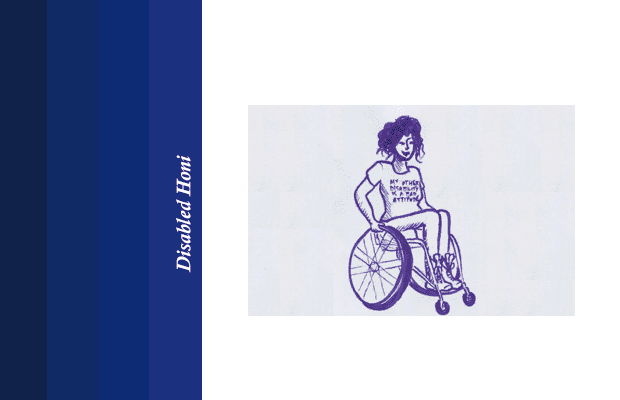If I had a dollar for every time a well-meaning care worker, acquaintance, or old lady on the train stumbled over referring to me as ‘disabled,’ I might not need such a robust NDIS plan. Where public discourse has played catch-up to the preferred language of other marginalised identities (see: ‘queer’ and ‘person of colour’), the disabled community has struggled to achieve such linguistic autonomy. We are spoken for, often in hushed and reverent tones, with terms like ‘differently abled’ and ‘special needs’ sugar-coating society’s deep discomfort with disability. Some have argued that the deployment of such language is a much-needed corrective to centuries of objectification and negative stereotyping of people with disabilities. But while this approach might be well-intentioned, I argue that it is woefully misguided.
I preface this argument with the caveat that the disabled community is a diverse one with a wealth of different opinions on self-identification; there may indeed be those among us who prefer ‘differently abled’ over more historically-loaded terms like ‘disabled’ or ‘crippled.’ What is most important is to respect the preferences of disabled folk rather than impose patronising terminology on their behalf in an act of supposed ‘good will’. That being said, I’d like to put forth a case for letting the euphemism die a long overdue death.
For starters, the phrase is awkward and clunky, tripping up the most fluent of tongues with its self-righteous sing-song. If we are looking for an elegant and accessible adjective to describe people with disabilities, ‘differently abled’ definitely isn’t it. Worse than the term itself however, is the way in which it is spoken. Most often deployed by abled and neurotypical folk, phrases like ‘differently abled’ and ‘special needs’ reek of a patronising smugness that implies the speaker’s supposed allyship.
Beyond the semantic stickiness of the term, I think that there are several significant harms which are perpetuated when we use language like ‘differently abled’ and ‘special needs’. First coined by the U.S. Democratic National Committee in the 1980s, the development of the term was distinctly devoid of any input from disabled folk themselves. Herein lies my first substantive objection to the use of ‘differently abled’ – it was created to soothe the social conscience of abled allies, rather than to serve the community it purports to describe. Far from the empowerment that the DNC were trying to inspire, such a term denies people with disabilities linguistic self-determination.
Moreover, replacing ‘disabled’ with these fluffier, feel-good counterparts contributes to a culture that alienates disabled folk by deflecting the harsh realities of living with a disability through recourse to a rhetoric of difference and uniqueness. Instead of having our pain and struggle acknowledged, we are constantly reminded of our ‘untapped’ potential and held up as a pinnacle of inspiration for the masses. This in turn engenders what English philosopher, Miranda Fricker, terms as ‘hermeneutic injustice’ whereby the disabled community have their social experience obscured from collective understanding due to structural prejudices in society’s understanding of disability. The constant reiteration of our specialness slowly eats away at the community’s capacity to make sense of our experiences, often leaving us feeling guilty and confused.
On a practical level, the adoption of language like ‘differently abled’ and ‘special needs’ within popular discourse has done nothing to materially improve the lives of disabled, mentally ill, and neurodivergent people. In fact, I would argue that is has done quite the opposite, reinforcing a medical model of disability that focuses on individual ability, rather than structural inequality and social support. Perhaps this is controversial, but I don’t believe that disabled folk have different abilities or needs than anyone else; rather, we face higher barriers to achieving our goals and meeting our basic needs due to inaccessible institutions, infrastructure, and ableist societal attitudes.
In the words of actress Lauren Potter, “What we really need is education, jobs, opportunities, friends, and some love. Just like everybody else. Are these needs special?”
I think not. So let’s ditch the niceties and call ‘difference’ what it really is: disability.
This article appeared in the autonomous Disabilities edition, Disabled Honi 2018.





